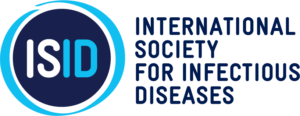WORLD IMMUNIZATION WEEK
World Immunization Week – April 24 to 30
World Immunization Week, observed in the last week of April, is a global initiative led by the World Health Organization (WHO) to promote the lifesaving power of vaccines. It emphasizes the importance of routine immunization in preventing infectious diseases such as tuberculosis, tetanus, measles, polio, diphtheria, and influenza, protecting people of all ages. The campaign encourages governments, healthcare providers, and communities to strengthen immunization programs, address vaccine hesitancy, and ensure equitable access to vaccines worldwide. By increasing awareness and expanding vaccination coverage, World Immunization Week plays a crucial role in reducing disease outbreaks and improving global public health.
Resources
Big Catch-Up
The COVID-19 pandemic impacted on health systems globally, key among this was the negative impact on immunization coverage with lockdowns and loss of preventive health services. This included loss of essential vaccination for vaccine preventable diseases in millions of children across the world. With the restoration of health services, travel and social activities, the theme for this year’s World Immunization Week 2023, the “Big Catch-Up” is apt! 2023 presents a great opportunity to “catch up” on essential vaccination particularly in children to achieve lost gains in the fight against vaccine preventable diseases.
Humanly Possible: Immunization for All
The World Immunization Week is celebrated yearly in the last week of April. This year, it will be celebrated from April 24 to April 30. It is worth noting that this year, the World Immunization Week celebration will mark the 50th anniversary of the Expanded Program on Immunization (EPI). The Expanded Programme on Immunization (EPI), an initiative launched by the World Health Organization in 1974, stands as a global endeavor to ensure equitable access to life-saving vaccines for every child, regardless of their geographic location or socioeconomic status. Over the past five decades, EPI has evolved and achieved remarkable milestones that reshaped the global health landscape.
Immunization for All is Humanly Possible
When Edward Jenner introduced the smallpox vaccine over two centuries ago, he couldn’t have imagined the far-reaching ripple effect his discovery would have. Since then, vaccines have transformed the global health landscape. In the past 50 years, they have saved nearly 154 million lives—that is, six lives saved every minute across five decades1. From the launch of the Expanded Programme on Immunization (EPI) in the 1980s to today's expansive global immunization strategies, vaccines have become the backbone of public health. Smallpox has been eradicated, polio is teetering on the edge of extinction, and millions of children who once might not have lived past their fifth birthday are thriving.
